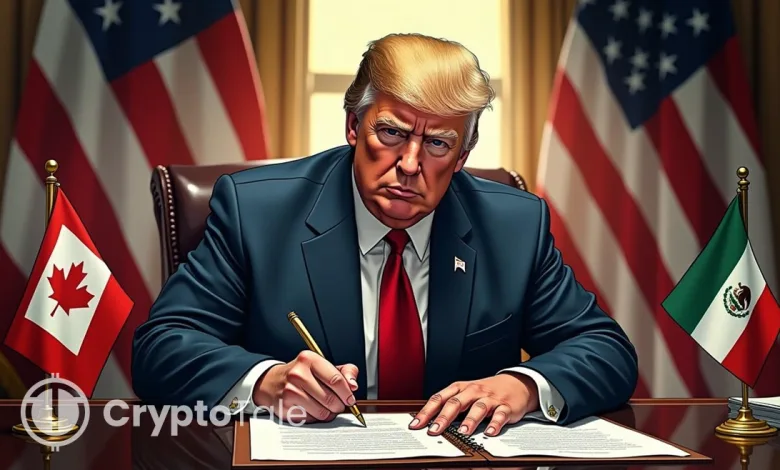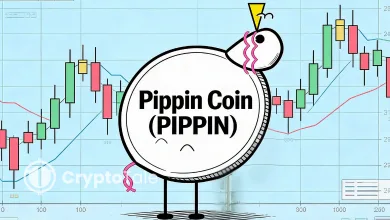Trump lifts Tariffs on Canada and Mexico as China Retaliates

- Trump stopped tariffs on Canada and Mexico after they promised to improve border security.
- China responded by placing new taxes on American oil and other major products.
- Tensions are rising as global trade battles continue affecting economies on all sides.
U.S. President Donald Trump has temporarily paused the implementation of a 25% tariff on imports from Canada and Mexico. This decision follows announcements from Minister Justin Trudeau and President Andrés about new initiatives to strengthen border security. Both leaders revealed measures to curb the trafficking of fentanyl into the United States and improve regional cooperation. The tax delay is expected to prevent price hikes on everyday goods for American consumers, such as cars and avocados while averting economic strain in Canada and Mexico.
Canada’s $1.3 Billion Plan to Combat Fentanyl Trafficking
The country has introduced an extensive $1.3B strategy to tackle fentanyl supply and strengthen crossing safety. Following talks with Trump, Prime Minister Justin Trudeau outlined the deployment of nearly 10,000 additional frontline staff equipped with advanced technology and aerial monitoring resources. These efforts aim to block the flow of illegal drugs into Northern America.
Additionally, he announced the appointment of a Fentanyl Czar to oversee anti-trafficking operations and a new U.S.-Canada joint strike force. This task force is designed to tackle smuggling and associated money laundering activities. To support intelligence efforts, the country allocated $200 million to track and dismantle organized crime networks connected to the crisis. As part of this bilateral agreement, he confirmed that the U.S. would pause proposed tariffs for 30 days, allowing joint strategies to take effect.
Mexico Boosts Northern Border Security in Tandem
Mexican President Andrés Manuel López Obrador has implemented parallel measures to curb fentanyl dealing, reflecting a coordinated effort with Canada and the U.S. After discussions with Trump, she announced the deployment of 10,000 National Guard members to the northern border. This operation will use advanced surveillance systems to ensure stricter control of trafficking routes.
The head of state emphasized its commitment to improving bilateral relations with America. By enhancing security, the nation aims to curb organized crime and address the shared challenges posed by the fentanyl epidemic. The decision to cooperate on this front demonstrates Mexico’s proactive role in tackling international issues, reinforcing its partnership with the U.S.
Similar Messages Fuel Speculation
Social media users have noted striking similarities in the statements from Trudeau and López . Collin Rugg, a verified commentator, highlighted identical phrasing in their announcements, speculating that the Trump government may have coordinated or influenced the messaging. This observation has raised questions about the extent of U.S. involvement in shaping the regional anti-drug strategy.
Regardless of the speculation, the overall stance of these two countries and the U.S. showcases the need of international cooperation in addressing the fentanyl crisis. These initiatives highlight the urgency of tackling organized crime while maintaining stability across North America.
Related: Markets Tumble as Trump’s Tariffs Shake Global Confidence
China Retaliates with Counter-Tariffs
Amid Trump’s tariff suspension for Canada and Mexico, China responded with countermeasures. Beijing imposed a 10% tariff on U.S. crude oil, farm equipment, and large-displacement vehicles and a 15% duty on coal and liquefied natural gas. China’s Ministry of Commerce confirmed the move on Tuesday, signaling a direct response to Trump’s economic policies.
Although Trump planned to meet with Chinese President Xi Jinping, his 10% tariff on Chinese imports remained on schedule. This raises questions on whether China reacted preemptively, seeing Trump’s softer stance on Canada and Mexico as a selective strategy? With escalation of economic tensions, China’s response underscores the growing unpredictability of global trade policies.




